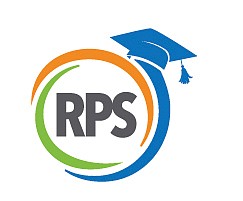Waiver sought for RPS student-athletes to continue playing sports
Jeremy M. Lazarus | 8/19/2021, 6 p.m.
Student-athletes in Richmond whose grades suffered when schools went virtual could still play football or participate in other fall sports.
The Free Press has learned that Richmond Public Schools Superintendent Jason Kamras is seeking to waive the current grade requirement for athletes for one semester and is polling School Board members to ensure he has majority support, which some members anticipate.
Henrico County Public Schools already has granted principals authority to grant grade waivers for their student-athletes for fall sports.
Currently, RPS policy requires students must maintain a 2.0 or C average in their studies to play on intermural teams.
The waiver would benefit athletes who had difficulty with their schoolwork during the last school year when classes went completely online and who have lost eligibility to play.
The board did not discuss the issue at its final August meeting on Monday, but Mr. Kamras apparently reacted to an appeal for a waiver that came from parents and supporters of students.
The most notable appeal came from Keisha Cummings, founding chief executive officer of the nonprofit community support and advocacy group 2Love LLC.
Ms. Cummings sent an email Aug. 12 to Mr. Kamras and the board urging the waiver for student-athletes “who are being informed they are unable to participate in the sports programs” due to their grades.
The Free Press was provided a copy of the email.
She cited the example of one athlete who “started the past school year with a 3.0 GPA and now has a 1.6 GPA,” and she indicated that other student-athletes also are impacted.
Ms. Cummings noted that the school system distributed to students laptops and hotspots to enable students to gain internet access to attend virtual classes. But she described the situation as imperfect.
“I saw firsthand in students’ homes that the wifi was very janky, constantly going in and out. The hotspots were low grade,” she continued, “and the walls of many homes I went into were cinderblock” that made Wi-Fi reception more difficult.
She stated that the impact was most noticeable on Black and Brown students in low-income families, particularly those living in Gilpin Court and Mosby Court public housing communities that have never been wired for broadband. Students from those communities had far more difficulty attending virtual classrooms and completing assignments. In her view, the student-athletes who live in poverty are being penalized for the failure of adults to ensure that the students’ computers operated properly.
For many students, she said in an interview, there is little recreation available and participation on school sports teams is a mainstay for helping keep students on track in school.
Richmond did not resume its sports programs in February, as did schools in neighboring Chesterfield, Hanover and Henrico counties and Petersburg and Hopewell, leaving too many students with few positive outlets, she said.
For some student-athletes whose grades have fallen, this could be their final year of high school sports eligibility, she said.
Blocking students from playing organized sports does not contribute to the city’s stated goal of promoting equity, she concluded.






